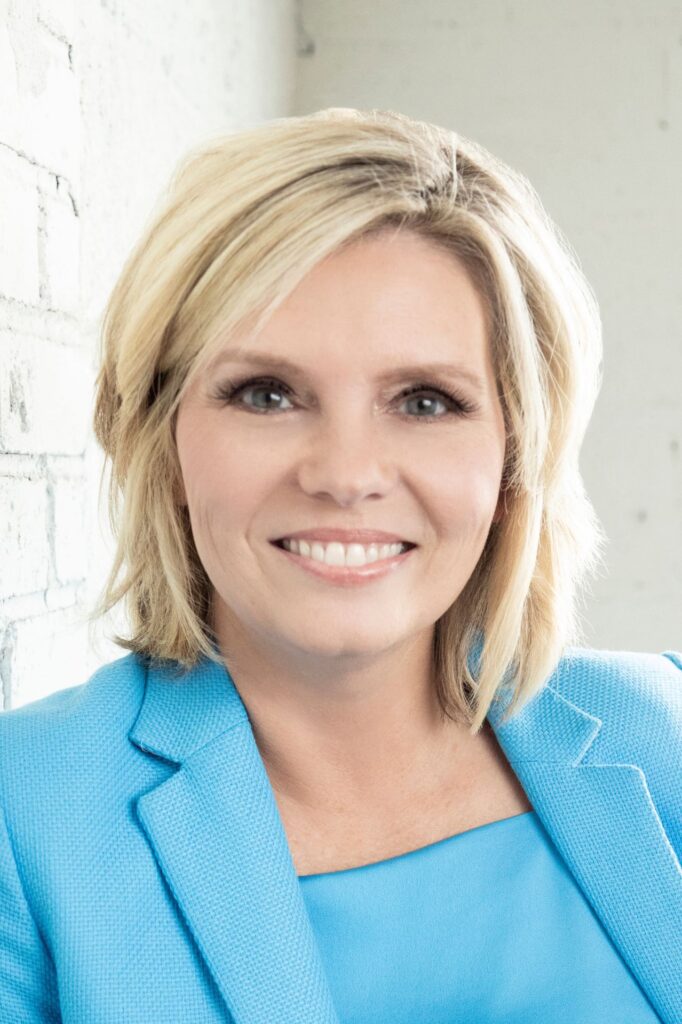
An Interview with
Stacy Woods
To help us navigate these options, I’m thrilled to introduce Stacy Woods, a seasoned mortgage expert with over 33 years of experience and a Senior Mortgage Lender at Highlands Residential Mortgage since 2017. Stacy has guided countless home buyers to the perfect loan, and today, she’ll share her insights to help you make confident, informed decisions.
What are the most common types of mortgages?
“The four most common types of mortgages are conventional, FHA, VA, and USDA loans,” Stacy explains. “Each one serves a specific purpose and type of borrower.”

The go-to for many repeat buyers are conventional loans. They’re flexible, competitively priced, and ideal for those with strong credit and savings. “You’ll typically need at least 5% down, but conventional loans work well for buyers who are financially stable,” Stacy notes.

FHA on the other hand, are often the choice for first-time home buyers or those with lower credit scores. “With just 3.5% down, FHA loans make home ownership more accessible,” she says. “Plus, they allow for higher debt-to-income ratios.”

VA loans are a fantastic option for eligible veterans. “These loans offer 100% financing, no down payment, and no PMI,” Stacy explains. “But eligibility must be verified through the VA.”

Designed for buyers in rural areas. “They also offer 100% financing and competitive rates,” Stacy shares. “But they’re income-restricted and location-dependent. Around Chattanooga, areas north of Hunter Road and Thrasher Pike, or south of Ringgold Road, often qualify.”
Are there specific types of mortgages for first-time home buyers?
Here’s an important note: Even if you’ve owned a home in the past, you can still be considered a first-time home buyer if you haven’t been on the title of a primary residence in the last three years. This opens the door for more people to take advantage of these programs, even if they’ve had prior home ownership experience.
How do I choose the right mortgage?
The question every buyer wants answered—how do you know which mortgage is right for you?
“It all comes down to your goals and finances,” Stacy says. “Are you buying a primary residence, an investment property, or a vacation home? For primary residences, you have access to VA, FHA, USDA, and conventional loans. But if it’s an investment property, there are several financial options for investment loans including a conventional loan.”
Your financial profile also plays a big role. “For example, if your credit score is on the lower side, FHA might be your best bet. But if you have excellent credit and some savings, conventional is probably a better choice.”
How Do Fixed-Rate Mortgages
Compare to Adjustable-Rate Mortgages (ARMs)?
“A fixed-rate mortgage is exactly what it sounds like,” Stacy says. “Your interest rate stays constant for the life of the loan, whether it’s 15 or 30 years. This is the best choice if you’re planning to stay in your home long-term and want the stability of predictable payments.”
“ARMs, or adjustable-rate mortgages, work a little differently,” she continues. “They have a fixed rate for an initial period—say three years—and then adjust annually based on market conditions. ARMs can be great for short-term homeowners, especially when their rates are lower than fixed rates. But in today’s market, ARM rates are often similar to fixed rates, so there’s not much benefit.”

What Are Jumbo loans, and who needs them?
If you’re buying a higher-value home, you might hear the term “jumbo loan.” Stacy explains that these loans are for properties priced above $806,500.
“Jumbo loans require a higher credit score and a larger down payment,” Stacy says. “They’re designed for buyers purchasing luxury homes or properties in high-cost areas. If you’re considering a jumbo loan, be prepared for stricter financial qualifications.”

Do I really need 20% down to buy a home?
This is one of the most persistent myths in real estate and buying a house. Stacy is quick to set the record straight: “No, you don’t need 20% down. That’s an outdated idea. Today, private mortgage insurance, or PMI, allows you to buy a home with a smaller down payment.”
PMI adds to your monthly payment, but Stacy assures buyers it’s worth it. “PMI is what makes home ownership possible for so many people, and it’s a small price to pay for getting into your dream home sooner.”
What’s the best advice for first-time buyers?
If you’re a first-time buyer, Stacy’s advice is simple: “Start early and meet with a lender ASAP. Even if you think you’re not ready, we can help. I’ll never tell you no—I might say ‘not right now,’ but I’ll always give you a plan of action.”
She also emphasizes the importance of improving your credit score, saving aggressively, and exploring programs like THDA (Tennessee Housing Development Agency). “These programs offer down payment assistance, either as a silent second loan or a parallel payment to your primary mortgage.”

How do interest rates affect my mortgage?
Interest rates are another big consideration. Stacy explains that they fluctuate daily—or even hourly—based on the market. “A lot of people think mortgage rates are tied to the Federal Reserve’s rate, but that’s not entirely true. Just because the Fed cuts rates doesn’t mean mortgage rates will drop. In fact, they might go up!”
To lock in the best rate, Stacy advises getting preapproved early. “Once you’re under contract for a property, you can lock your rate and avoid market fluctuations.”

Types of Mortgages Making the Right Choice
Choosing the right mortgage is about more than just interest rates or down payments—it’s about finding a loan that fits your life. Whether you’re a first-time buyer, a veteran, or someone looking for a rural property, there’s a mortgage designed for you.
With expert guidance from someone like Stacy Woods, you can navigate the options, avoid common pitfalls, and make a confident decision.
Ready to take the next step? Contact Stacy today to start your journey to home ownership.
Would you like help scheduling a consultation or learning more about these loan programs? Let us know!

